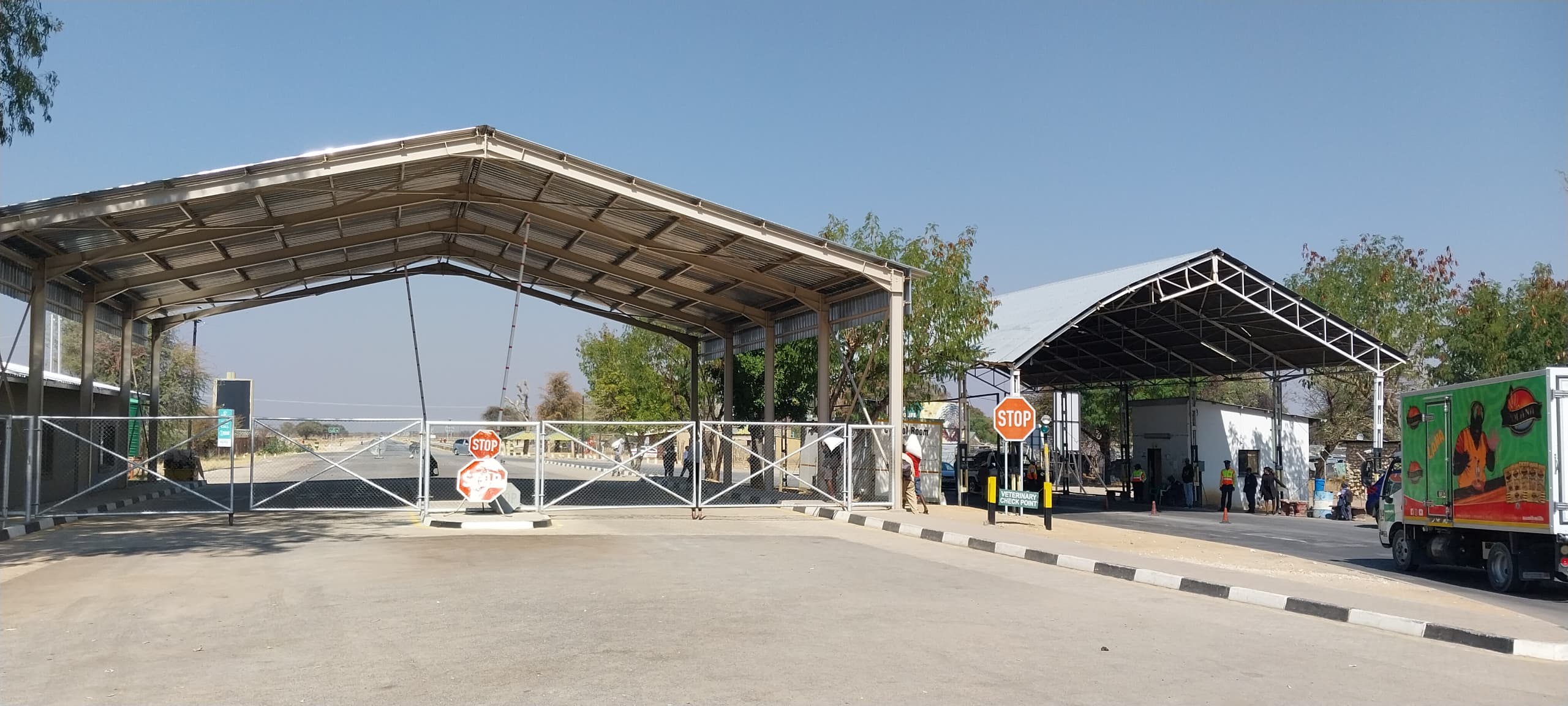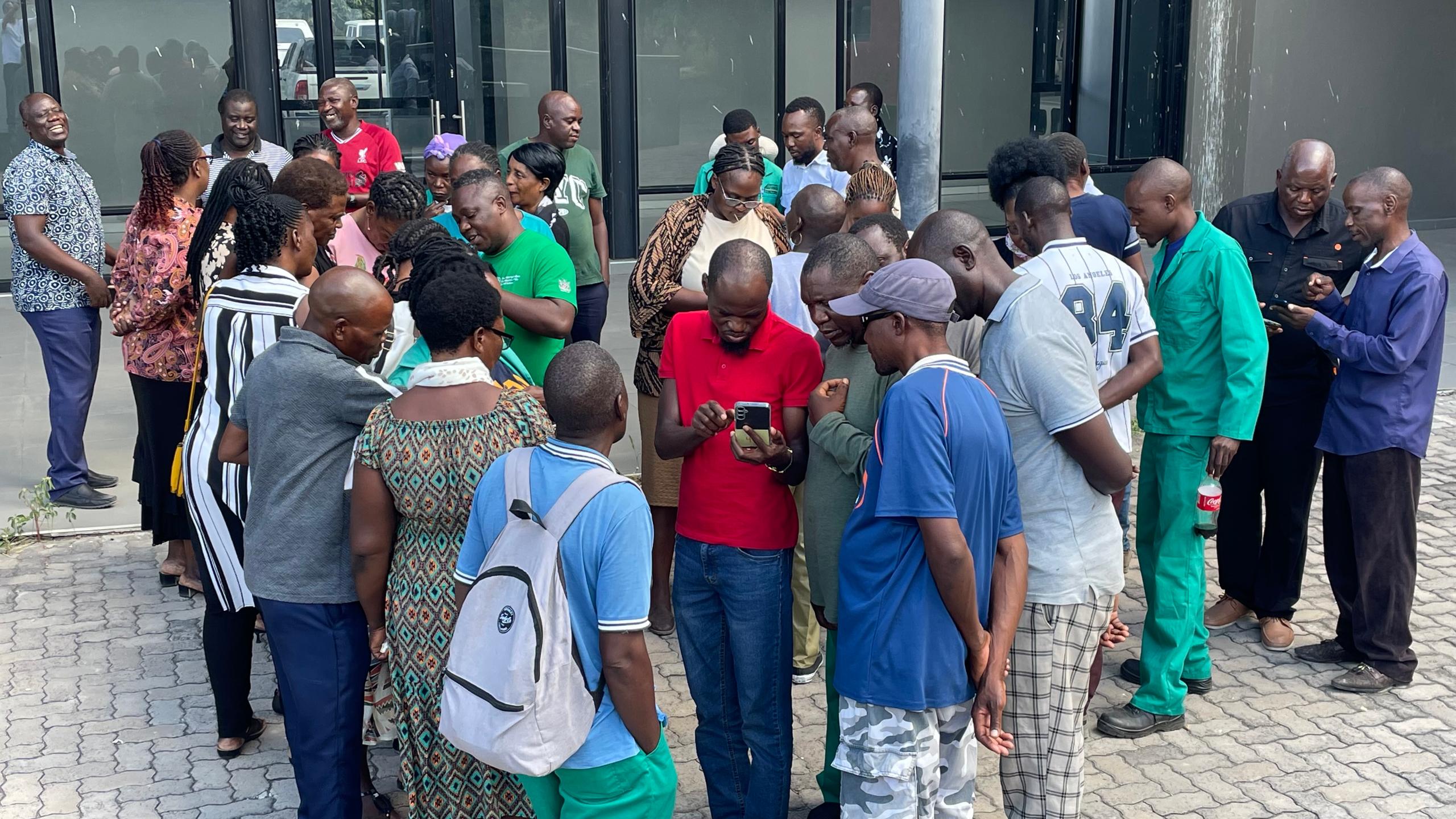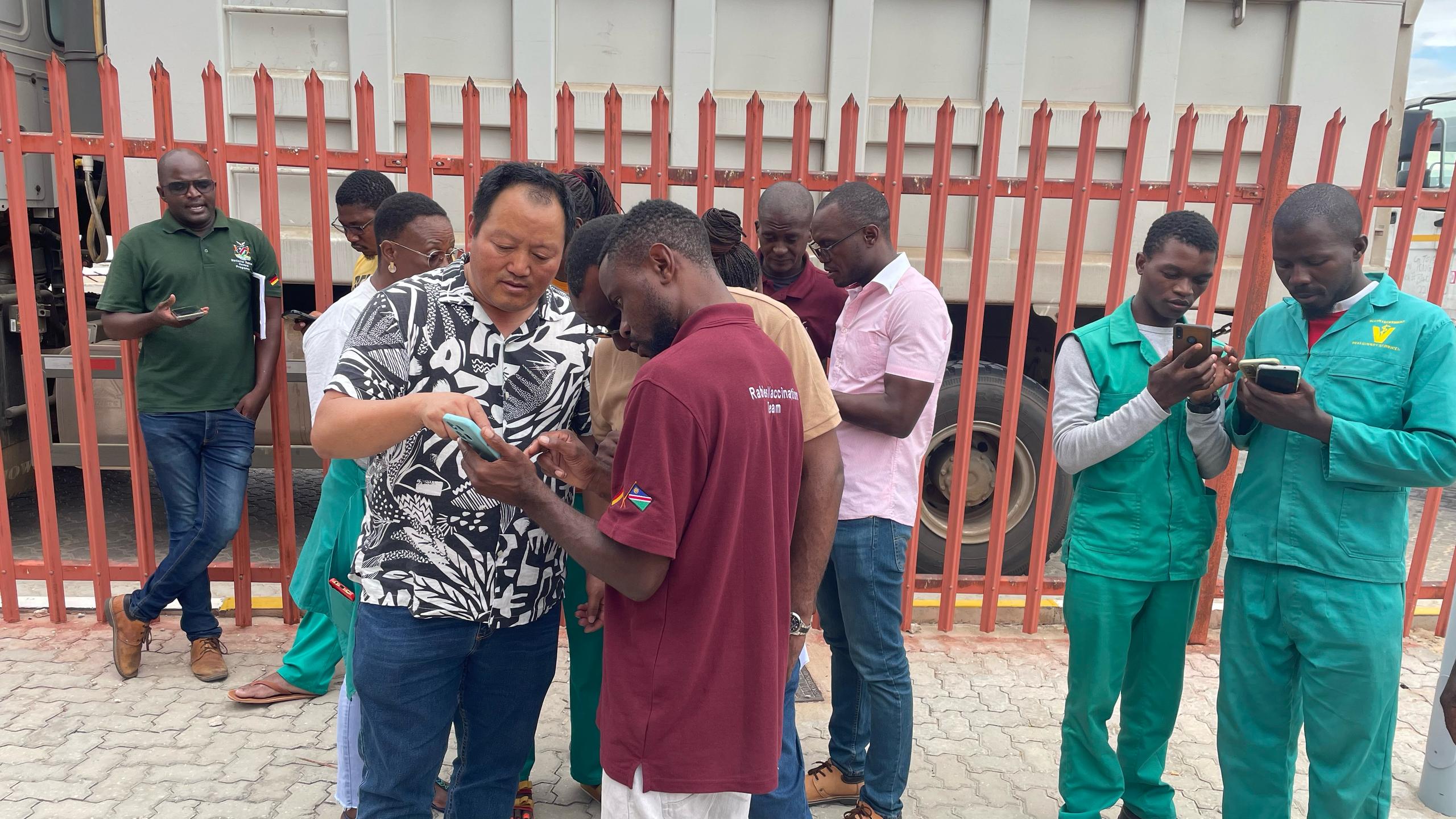
In Namibia, mass dog rabies vaccination campaigns are conducted during school holidays (June–July) through central vaccination points. Since 2016, with support from the WOAH-administered Rabies Project and investments from the Namibian government, vaccination coverage in dogs has improved, and human rabies deaths have significantly decreased from 23 in 2015 to five (5) in 2024.
To monitor vaccination progress, mobile phone technology was introduced in 2022, enabling the tracking of individual vaccinations and mapping of vaccination points. Vaccination teams in Namibia requested in-person training on using the mobile application and organising vaccination campaigns. In response, a one-day training workshop was conducted in each of the eight regions of the Northern Communal Areas (NCA) of Namibia, between 3 to 7 March 2025 in Oshana, Omusati, Oshikoto, Ohangwena, and Kunene regions, and from 1 to 3 April 2025 in Kavango West, Kavango East, and Zambezi regions. A total of 164 animal health staff member (veterinarians, animal health technicians and support staff who -together- form a vaccination campaign team) attended the training.
A World Café session was held, focusing on key considerations for preparing a mass dog vaccination campaign, implementing it in the field, and conducting post-vaccination assessments. This was followed by facilitators providing feedback on the group exercises, sharing key tips, and leading a group discussion.
Participants during the mobile phone app training. Photo © Tenzin Tenzin (woah) 2025
Participants were trained on accurately collecting vaccination data using the mobile app, and several technical issues encountered in the field were addressed. A practical session was conducted to ensure that all participants were fully equipped with the skills to use the mobile app for collecting and uploading vaccination data to the central data platform.
The training was funded through the BMZ-OHRT project, supported by the Republic of Germany, and facilitated by Dr. Tenzin Tenzin, WOAH Rabies Project Coordinator and Mr. Reinhold Haimbodi from the Directorate of Veterinary Services, Namibia.


